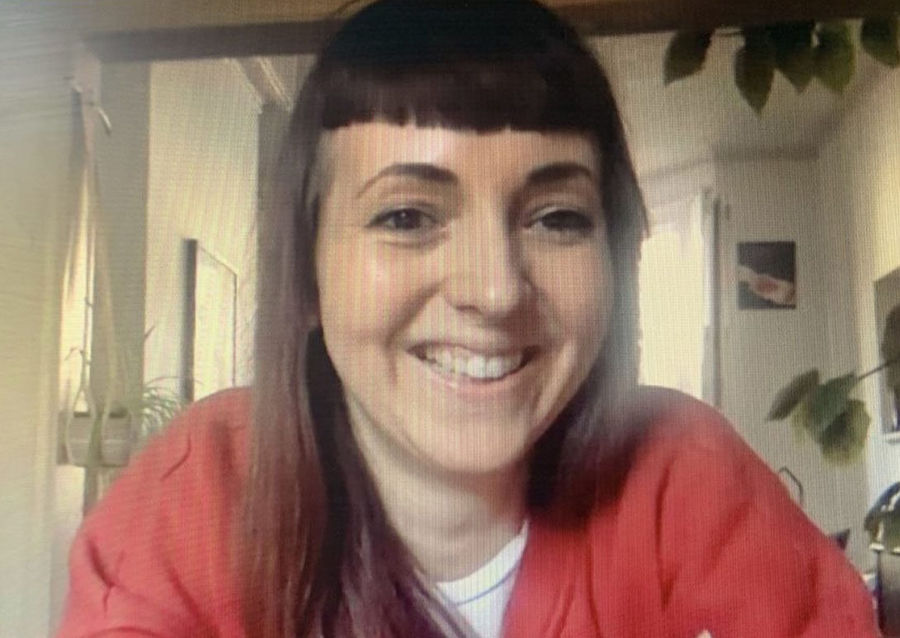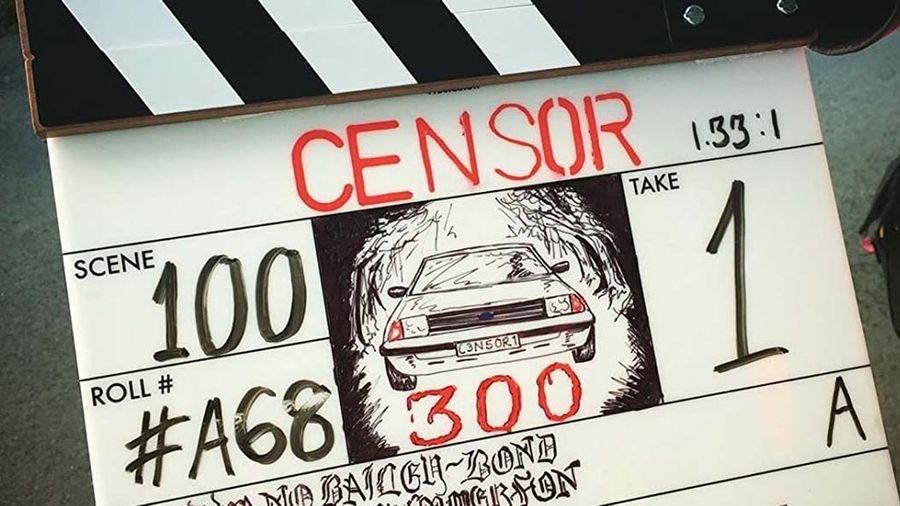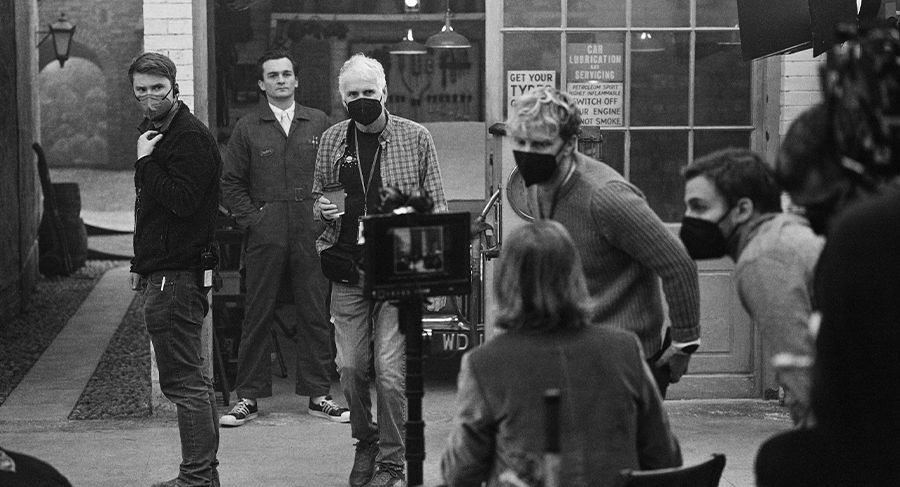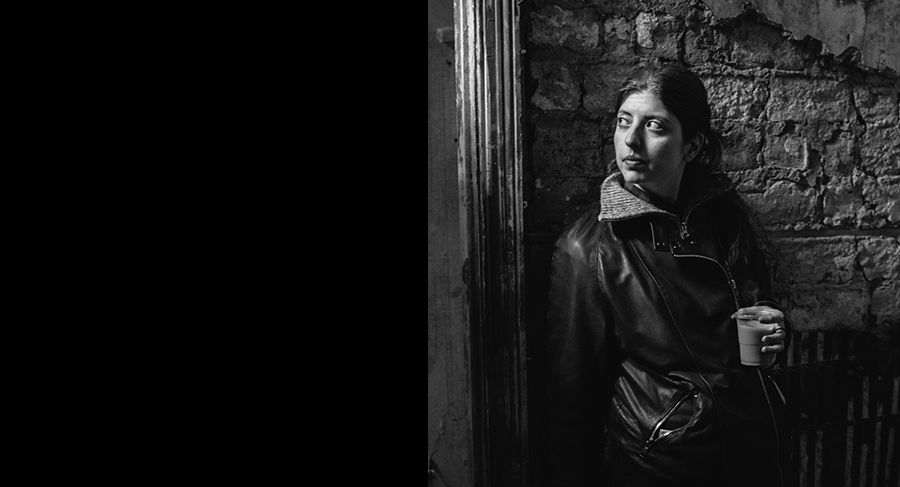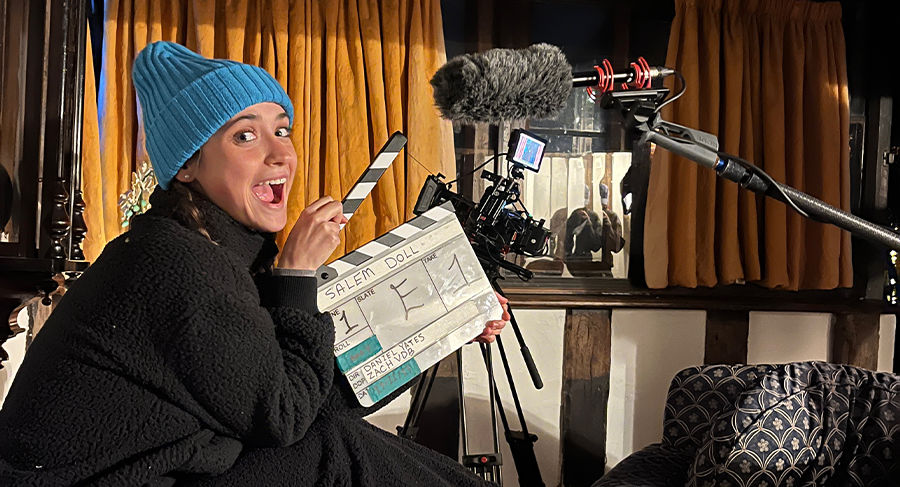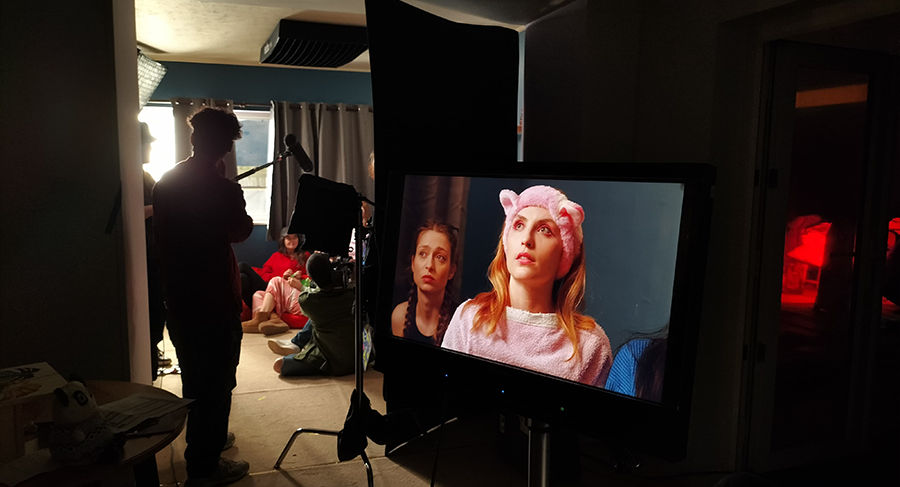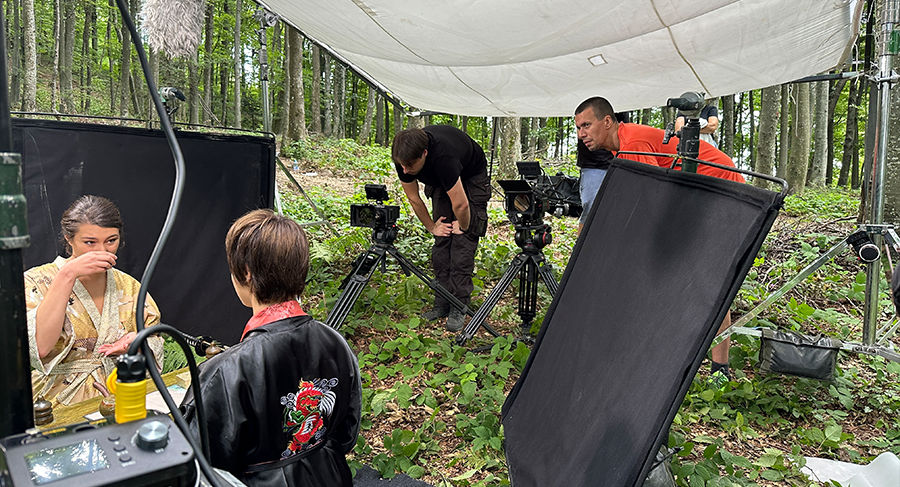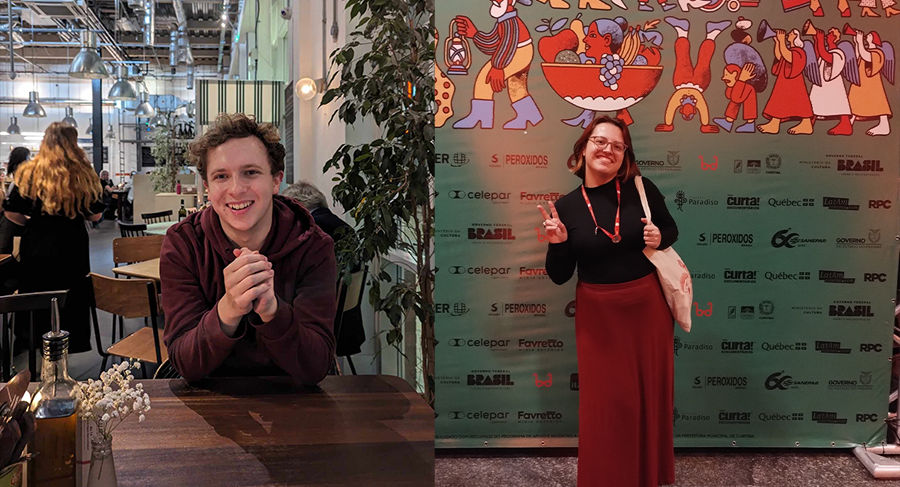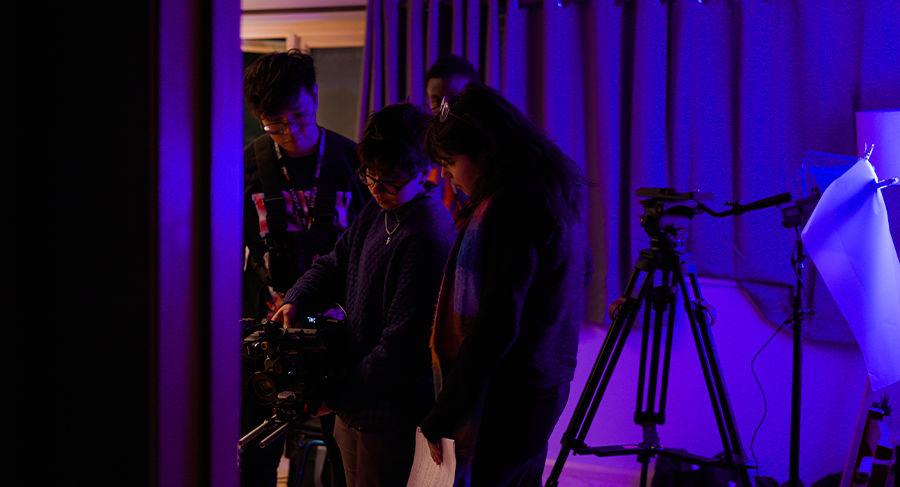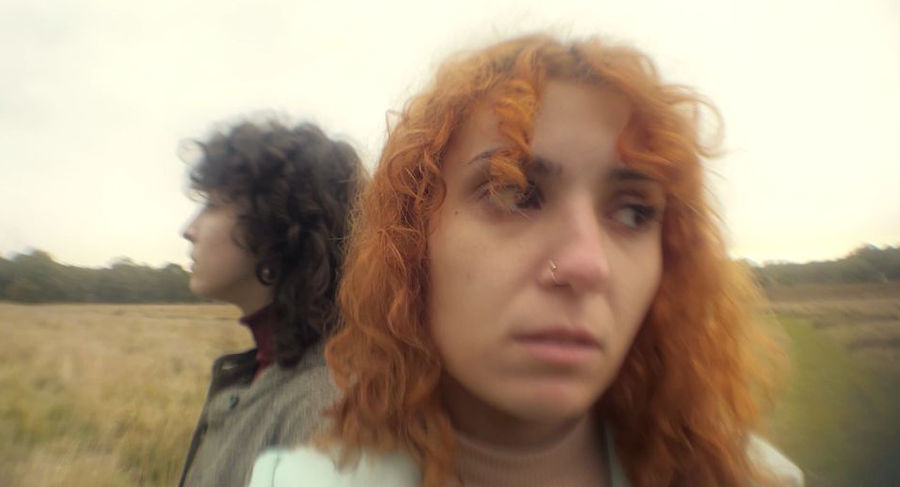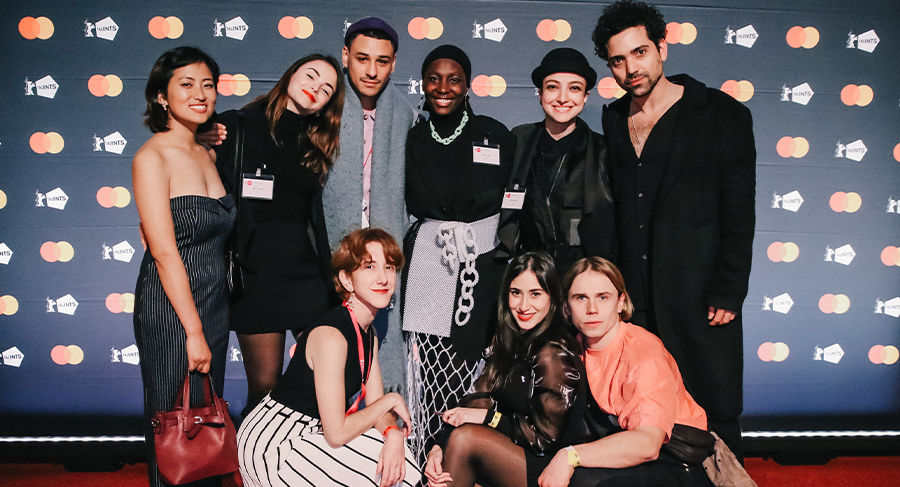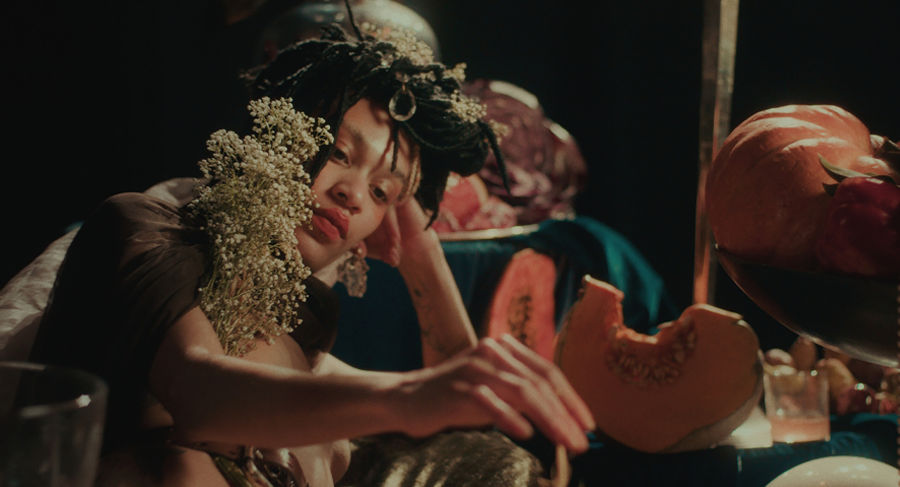Top takeaways from our Masterclass with Director Prano Bailey-Bond
By Rosie Togher
18 June 2020
Prano Bailey-Bond is a Welsh writer, director and MetFilm School tutor who needs to be on every horror fan’s radar. Named a Screen International Star of Tomorrow in 2018, Prano is currently in post-production on her debut feature film Censor, which stars BAFTA Breakthrough Brit Niamh Algar (The Virtues), and is backed by Film4, the BFI and Ffilm Cymru Wales.
We are thrilled to have Prano talk exclusively to MetFilm School students about where her love of film stemmed from and to provide an insight into her work. Here are seven things we learnt from this MetFilm Masterclass…
Love of Film
I grew up in Wales, in the middle of nowhere watching the same films over and over again on VHS. There was only one bus a week to our nearest cinema, so I didn’t get to go there much. I originally wanted to be an actress; my mum was an actress and my dad was a painter. I went on to study Performing Arts and while I was there, I became much more interested in sculpting performances and productions from the outside, rather than being in them. I began making my own short films with friends and went onto study Film at university.
First Steps into Film
I got a job at Goldcrest Postproduction as a runner; I pretended I wanted to be a sound designer just to get the job. I made a short film while I was there and got work colleagues to assist with the editing and sound for it. One of my first experiences as a professional editor was editing The Apprentice Africa which was intense as I was working 6 days a week. When I returned to London, I did a lot of freelance editing work and continued making my own short films and music videos.
Making Music Videos
I began seeking out my own opportunities, so I would find songs that I really loved and make videos for them. Poltergeist was one of my first; which was part music video and part experiment, I played all the characters myself. I kept the crew and cast numbers to a minimum to allow myself time to enjoy making the video and not feel rushed. After this I needed to do something more commercial.
I found this abandoned house, so I reached out to friends to see if anyone had music that might work for this location and was sent House. I roped in a lot of my friends to help with costumes etc. with a budget of £160 for the whole film. The video went on to win a UK Music Video Award which was amazing, and I got representation as a music video director, which is what I had set out to achieve.
Finding your niche
I didn’t think of myself as a horror director for a long time. It wasn’t until I did the film for Film London, and they watched my showreel that I realised I was a horror director. After this I embraced it, it’s good to be identified for something. There are a lot of people out there making films, so if you can find your niche, it is a great way to be recognised. Once you are recognised you can then expand beyond that.
Nasty
Nasty for me was a way of exploring the feature film idea I had for Censor. At this point I hadn’t made a feature film and felt like Nasty was the right next step for me in terms of managing a slightly longer story and bigger cast. It prepared me so well that when it came to making Censor, the fact that I already had this short film behind me gave people a taste of what I was going to do, and the success of Nasty really helped me along the way. Sometimes people don’t always understand what you are trying to do unless you show them.
Trailer for Prano’s award-winning short Nasty, which screened at over 100 festivals after premiering at the BFI London Film Festival 2015
Control Freak
Getting Nasty out to film festivals was a huge job. I can be a bit of a control freak and with Nasty I wanted to make sure it was being done right. I made a spreadsheet of all the film festivals that I wanted to submit to whilst looking at other short films which had been screened within the same genre as mine. It was all worth it in the end, as it was screened at over 100 film festivals.
Censor
For Censor, Ffilm Wales, Creative England, BFI and Film4 were on board for development. Ffilm Wales stayed on throughout the entire process right through to production. We were developing with each partner at different stages. To fund it we met with a finance forum where we spent around 4 days in a room pitching, this was great as it gained lots of interest off the back of that.
Check out Variety’s key Brit pics in the pipeline, including Censor.
Got a story you want to tell? Download a prospectus today.
